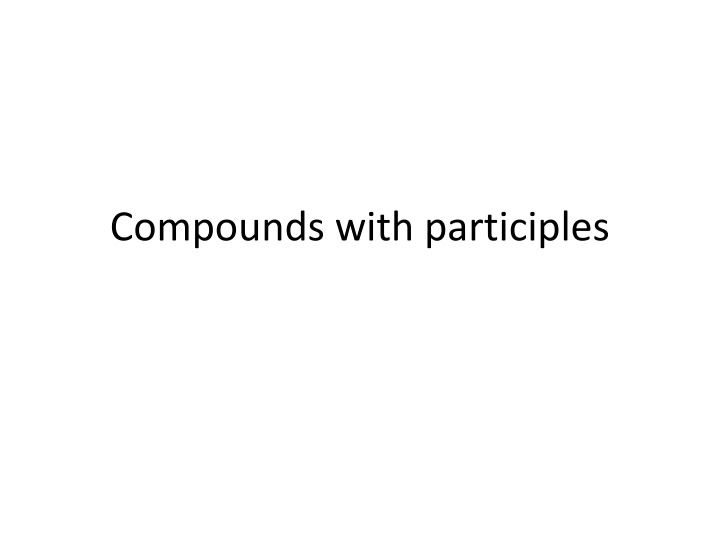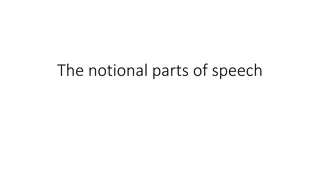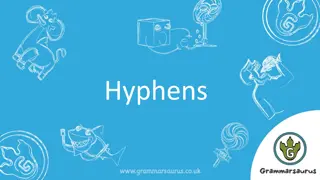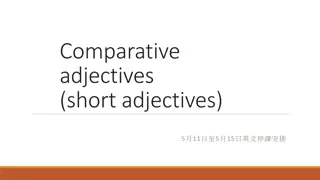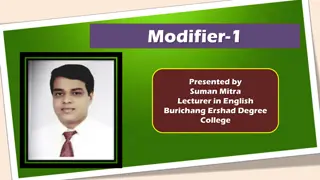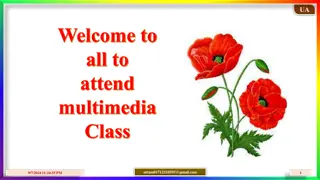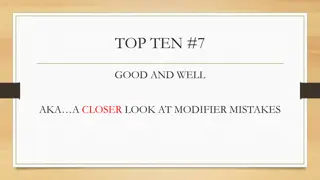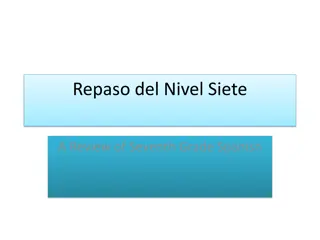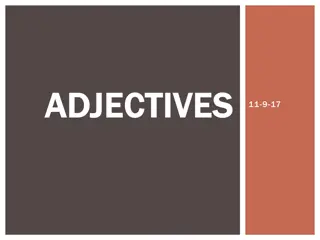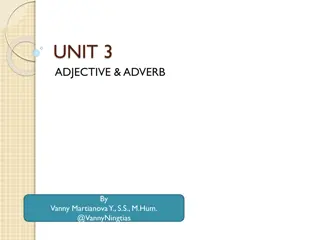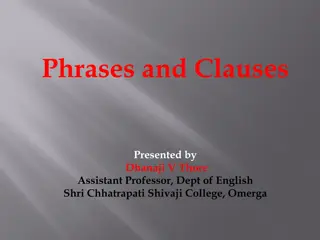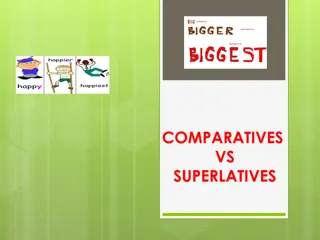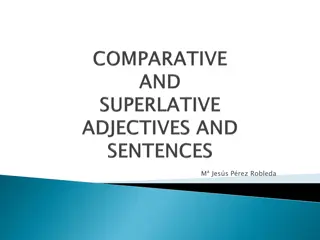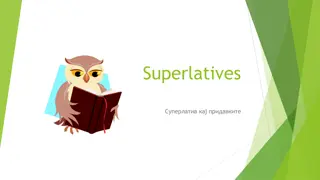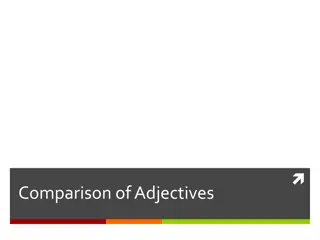Compound Adjectives, Verb Patterns, and Infinitive Forms in English Grammar
Explore the structure and usage of compound adjectives formed with participles, verb patterns with gerunds and infinitives, and object combinations in English grammar. Understand how to construct and use these structures effectively in sentences for clear communication.
Uploaded on Sep 25, 2024 | 4 Views
Download Presentation

Please find below an Image/Link to download the presentation.
The content on the website is provided AS IS for your information and personal use only. It may not be sold, licensed, or shared on other websites without obtaining consent from the author.If you encounter any issues during the download, it is possible that the publisher has removed the file from their server.
You are allowed to download the files provided on this website for personal or commercial use, subject to the condition that they are used lawfully. All files are the property of their respective owners.
The content on the website is provided AS IS for your information and personal use only. It may not be sold, licensed, or shared on other websites without obtaining consent from the author.
E N D
Presentation Transcript
compound adjectives = adjectives made of two or three words - usually have a hyphen between them - patterns: adjective/adverb + present/past participle (e.g. fast-paced) noun + present/past participle (e.g. sun-kissed)
Verbs followed by: -ing avoid, consider, discuss, enjoy, finish, imagine, recommend, suggest Have you finished reading the book? Have you considered reading a book? Did you enjoy reading a book? Can you imagine being on the beach right now?
infinitive with to agree, hope, plan, afford, need, prefer, intend, refuse She agreed to talk to us, but refused to help. She plans to move to London as soon as she can. She cannot afford to buy so much clothes. She prefers to cook her own meals.
object + infinitive with to ask, expect, get, help, inspire, want She inspired me to write my book. She expected me to help her with her homework. She asked me to help her carry her bags. I wanted him to help me, not you!
object + infinitive without to let, make They must let him see him make his students work. They made him go to the cinema, even though he didn t want that.
+ -ing + infinitive with to verb meaning example meaning example remember / forget something I remember meeting him at a party and I ll never forget hearing him sing. something you should do or want to do Please remember to lock the door when you go out. remem ber / forget be sorry for doing something I regret not telling her about the party. give some bad news I regret to tell you that you weren t successful. regret
+ -ing + infinitive with to verb meaning example meaning example do something as an experiment I tried cooking with butter instead of oil, but I didn t like the taste. attempt to do something which is difficult She tried to climb the mountain, but she didn t reach the top. try enjoy I like swimming but I hate surfing. do something as a habit I like to swim every morning before work. like
+ -ing + infinitive with to verb meaning example meaning example no longer do something I stopped talking to Henry stop in order to do something different do something after completing something else I stopped to talk to Henry. stop continue to do something Shall we go on looking at these pictures? We talked about books and then went on to discuss politics. go on
